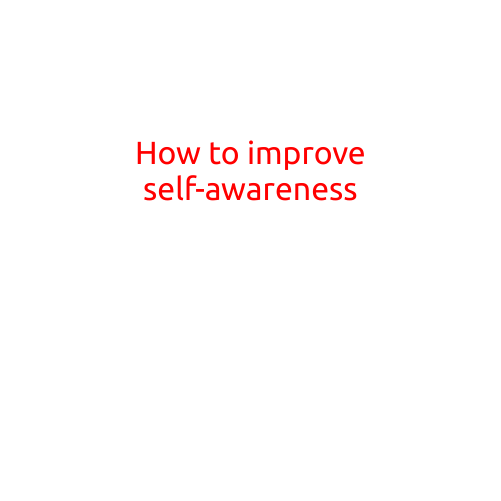
How to Overcome Procrastination: Tips and Strategies to Boost Your Productivity
Procrastination is a common phenomenon that affects people from all walks of life. We’ve all been there - staring blankly at a task, feeling overwhelmed, and convinced that we’ll get to it eventually. But eventually never comes, and before you know it, deadlines are looming, and your mental and emotional well-being is suffering.
The good news is that overcoming procrastination is achievable with the right strategies and mindset changes. In this article, we’ll explore the reasons behind procrastination, identify the common obstacles that hold us back, and provide actionable tips to help you overcome procrastination and boost your productivity.
Why Do We Procrastinate?
Procrastination is often driven by a combination of four main factors:
- Fear of failure: The fear of not meeting expectations or making mistakes can be overwhelming, leading to avoidance of the task altogether.
- Perfectionism: The need to achieve perfection can lead to procrastination, as we may feel that we’re not good enough or that our work won’t meet the expected standards.
- Brain’s tendency to avoid stress: Our brains are wired to avoid stress and discomfort, and if a task is perceived as too challenging or daunting, we may procrastinate to avoid feeling anxious or overwhelmed.
- Lack of motivation: When we’re not intrinsically motivated by the task or feel that it’s not important, we may lose interest and put it off.
Identifying Common Obstacles
Before we dive into strategies to overcome procrastination, it’s essential to identify the obstacles that hold us back.
- Lack of clear goals: Unclear or poorly defined goals can lead to confusion and procrastination.
- Poor time management: Failing to prioritize tasks, setting unrealistic deadlines, or underestimating the time required for a task can contribute to procrastination.
- Divided attention: Multitasking, social media, and email notifications can distract us and hinder our focus.
- Negative self-talk: Criticizing ourselves or our abilities can create a sense of hopelessness and prevent us from taking action.
Strategies to Overcome Procrastination
Now that we’ve identified the common obstacles, let’s explore the strategies to overcome procrastination:
- Break down tasks into smaller chunks: Divide large tasks into smaller, manageable tasks to reduce overwhelm and increase motivation.
- Set clear goals and deadlines: Establish specific, measurable, achievable, relevant, and time-bound (SMART) goals to guide your actions.
- Create a schedule and stick to it: Prioritize tasks, allocate specific times for each task, and commit to a schedule to maintain focus.
- Eliminate distractions: Identify potential distractions (e.g., social media, email, phone notifications) and eliminate them while you work.
- Use the Pomodoro Technique: Work in focused 25-minute increments, followed by a 5-minute break, to maintain energy and avoid burnout.
- Create a conducive work environment: Ensure your workspace is comfortable, organized, and free from distractions.
- Practice self-compassion: Treat yourself with kindness and understanding when you make mistakes or encounter setbacks.
- Reward yourself: Celebrate small victories by rewarding yourself with non-food items or activities that bring you joy.
- Seek accountability: Share your goals and progress with a friend or mentor to increase motivation and accountability.
- Practice mindfulness and self-reflection: Regularly reflect on your procrastination habits and practice mindfulness to increase self-awareness and develop greater control over your thoughts and behaviors.
Conclusion
Overcoming procrastination requires a combination of understanding the underlying reasons behind it, identifying the obstacles that hold us back, and implementing strategies to boost our productivity. By breaking down tasks into smaller chunks, setting clear goals, and eliminating distractions, we can overcome procrastination and achieve our goals.
Remember, overcoming procrastination is a process that takes time, patience, and persistence. Be gentle with yourself, and don’t give up. With the right mindset and strategies, you can overcome procrastination and achieve success in all areas of your life.





